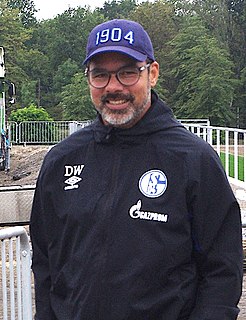A Quote by Constance Hale
There is no one way to render an idea. Let’s explore how masters of the sentence play with length and style to make their sentences distinctive.
Related Quotes
Know what makes a sentence more than a random list, practice constructing sentences and explaining what you have done, and you will know how to make sentences forever and you will know too when what you are writing doesn't make the grade because it has degenerated into a mere pile of discrete items.
I always tell my students to write the story all the way through, not to play with the language and fall in love with sentences that you then have to cut. I actually find that really difficult to do; there's something so demoralizing about looking at a pile of not very great sentences. As I ease into writing every morning, I tweak a sentence and then tweak a paragraph.
The book works better if I know everything I can about the ending. Not just what happens, but how it happens and what the language is; not just the last sentence, but enough of the sentences surrounding that last sentence to know what the tone of voice is. I imagined it as something almost musical. Then you are writing toward something; you know the sound of your voice at the end of the story. That's how you want to sound in those final sentences: the degree that it is uplifting or not, the degree that it is melancholic or not.
Read non-fiction. History, biology, entomology, mineralogy, paleontology. Get a bodyguard and do fieldwork. Find your inner fish. Don't publish too soon. Not before you have read Thomas Mann in any case. Learn by copying, sentence by sentence some of the masters. Copy Coetzee's or Sebald's sentences and see what happens to your story. Consider creative non-fiction if you want to stay in South Africa. It might be the way to go. Never neglect back and hamstring exercises, otherwise you won't be able to write your novel. One needs one's buttocks to think.
Every sentence has a truth waiting at the end of it and the writer learns how to know it when he finally gets there. On one level this truth is the swing of the sentence, the beat and poise, but down deeper it's the integrity of the writer as he matches with the language. I've always seen myself in sentences. I begin to recognize myself, word by word, as I work through a sentence. The language of my books has shaped me as a man. There's a moral force in a sentence when it comes out right. It speaks the writer's will to live.
When the idea came up, (Newman's Own) I said, "Are you crazy? Stick my face on the label of salad dressing?" And then, of course, we got the whole idea of exploitation and how circular it is. Why not, really, go to the fullest length, and the silliest length, in exploiting yourself and turn the proceeds back to the community?
I turn sentences around. That's my life. I write a sentence and then I turn it around. Then I look at it and I turn it around again. Then I have lunch. Then I come back in and write another sentence. Then I have tea and turn the new sentence around. Then I read the two sentences over and turn them both around. Then I lie down on my sofa and think. Then I get up and throw them out and start from the beginning.
We're living history all the time, in the papers, in the news, you think about stuff and it goes into your brain and you think about it and it comes out somehow. You have an idea; you've heard a phrase, or you're angry, or something disturbs you, or something seems paradoxical to you, you explore that idea, much like a writer would explore maybe an idea through metaphor. Maybe artists use their vehicle to explore ideas, so I think the things that interest me are the kind of idea of continuous change and how nothing stays the same and it's always disintegrating into something more.
Writing keeps me at my desk, constantly trying to write a perfect sentence. It is a great privilege to make one's living from writing sentences. The sentence is the greatest invention of civilization. To sit all day long assembling these extraordinary strings of words is a marvelous thing. I couldn't ask for anything better. It's as near to godliness as I can get.






































